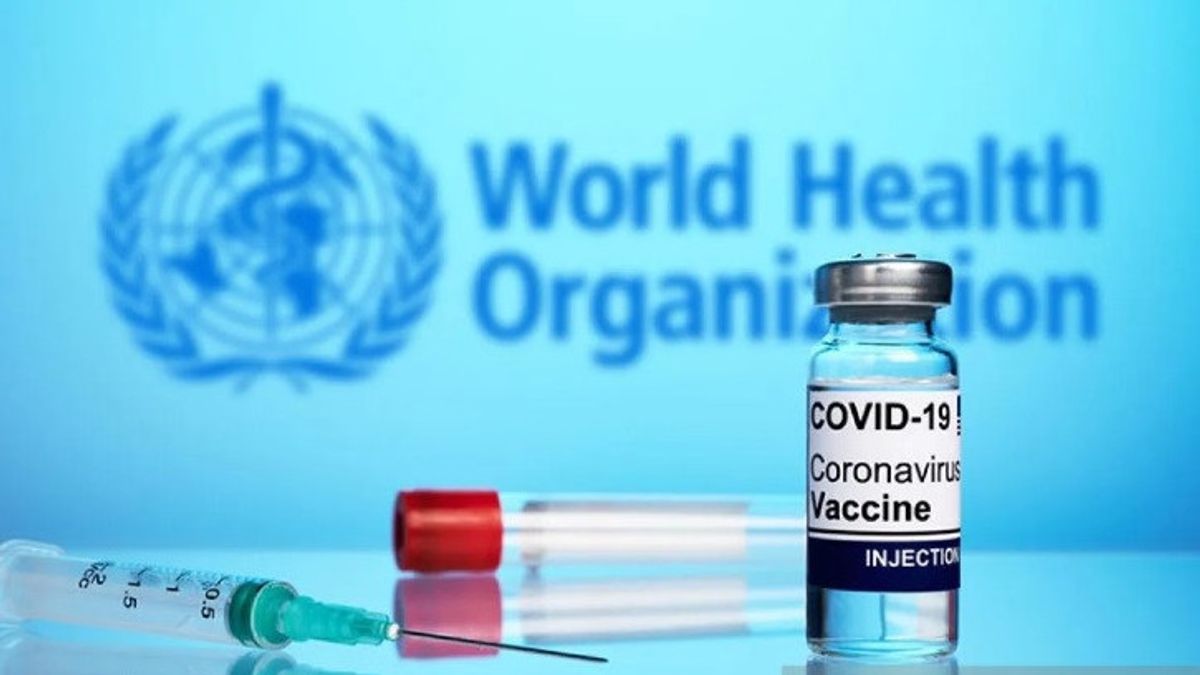JAKARTA COVID-19 cases have risen again recently. Some people seem to ignore this increase in cases, but not a few are still traumatized after the coronavirus pandemic that hit all over the world. The World Health Organization (WHO) said there was an increase in cases of 52 percent in the period November 20-17 December 2023.
The Ministry of Health (Kemenkes) found that two residents of DKI Jakarta died due to COVID-19 in December 2023. This is the first death from COVID-19 in the capital after two consecutive months of zero.
Head of the Surveillance, Epidemiology and Immunization Section of the DKI Jakarta Health Office, Ngabila Salama, said that the last cases of COVID-19 deaths were in September 2023, namely three cases. Meanwhile, in October and November 2023 there were no cases of death due to COVID-19.
The spike in COVID-19 cases in Indonesia coincided with similar increases in two neighboring countries, namely Malaysia and Singapore. However, the Indonesian people seem more relaxed in facing the news of the current spike in COVID-19 cases.
The corona virus was first discovered in Wuhan in December 2019. At that time, news about the main cause of the emergence of the corona virus was still confusing.
Rumors emerged that the spread of the coronavirus first occurred in one of the wild animal markets in the Chinese city of Wuhan. Some experts say COVID-19 is a zoonosis disease which means it is transmitted from animals to humans.
When the Indonesian government announced that the corona virus had entered for the first time on March 2, 2020, the public began to feel panic. At that time, almost all supermarkets and markets were flooded with buyers buying up necessities before the government announced a lockdown.
But among the extraordinary fears, not a few people who don't care even seem to 'challengage' COVID-19.
The massive spread of misinformation or hoaxes regarding COVID-19 is one of the reasons why this disease is considered a myth or trick of the global elite for certain purposes.
In today's state-of-the-art era, misinformation is often found on various social media, from Facebook to WhatsApp messages. Including the issue of COVID-19. And ironically, it is not impossible that the spreader and even the fake news maker will emerge from public figures to educated people.
A survey from YouGov and The Economist in March 2020 showed that 13 percent of Americans believe COVID-19 is a hoax, while 49 percent believe this pandemic is man-made.
In fact, this kind of fake news can make the public ignore government guidelines, which in the end make the situation more difficult to control.
Public policy observer from Gadjah Mada University (UGM) Satria Aji Imawan on June 26, 2021, said that the problem of handling the corona virus in Indonesia was mostly influenced by hoaxes and behavior of officials to public figures.
According to Satria, the health sector is one of the highest hoax sectors. Since the beginning of the pandemic, conspiracy issues have spread in Indonesia.
Singer Anji, drummer Superman is Dead (SID) Jerinx, Deddy Corbuzer and Young Lex were among Indonesian artists who did not believe in COVID-19 at the beginning of their appearance.
These have a lot of followers, so what is said is almost certainly believed by their followers.
This is in line with the opinion put forward by clinical psychologist and forensic psychologist Kasandra Putranto who said people easily believe in hoax news because they prefer to hear news as desired. Kasandra said people tend to believe in hoaxes if the information is in accordance with their opinions or attitudes, even ignoring the facts.
"If someone already likes a certain group and has a strong opinion on an object, then people are more comfortable with news that affirms similar attitudes and opinions even though the truth is not necessarily true," Kasandra explained.
However, the skepticism of artists against COVID-19 does not only occur in the country. Ukrainian health influencer Dmitriy Stuzhuk, 33, thought that COVID did not exist until he finally trusted after being exposed to the virus.
Dmitriy Styzhuk contracted the coronavirus on his way to Turkey and was hospitalized in Ukraine. He was sent home from the hospital, but was rushed back there a few hours later because his condition worsened, causing him to die.
I want to share how I'm sick and to warn everyone. I'm the one who thought COVID didn't exist, until I got sick," this 33-year-old man wrote when he was declared exposed to the coronavirus.
Now, when COVID-19 cases have soared again in the midst of the Christmas and New Year holidays, most people ignore the news. According to child psychologist, teenager and Sani Budiantini Hermawan's family, psychologically, the Indonesian people are now better prepared to face COVID-19.
Status yang berubah dari pandemi menjadi endemi, efektivitas vaksin COVID-19 yang baik membuat publik lebih percaya menghadapi COVID-19 sehingga tampak cuek.
"Now people are more prepared to face COVID-19 because they think it is like the flu in general, with known symptoms," Sani told VOI.
"In addition, the COVID-19 vaccine also makes people more ready to accept cases now," he added.
However, according to Sani, it is possible that some people are still afraid of the current increase in COVID-19 cases due to deep trauma.
SEE ALSO:
Sani said feelings of anxiety and worry cannot be separated from past bad experiences. For example, when COVID-19 was getting worse in Indonesia and even the world, many lost loved ones. This is what makes some other people not just ignore the fact that the spike in COVID-19 cases is a terrible thing.
"But not everyone also ignores COVID-19 because there may be trauma and we are still imagining events in the past, so that some COVID-19 people are scary," he said.
The English, Chinese, Japanese, Arabic, and French versions are automatically generated by the AI. So there may still be inaccuracies in translating, please always see Indonesian as our main language. (system supported by DigitalSiber.id)














